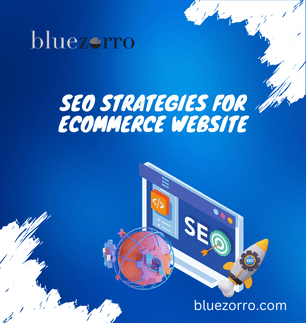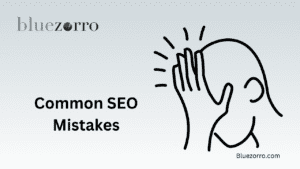SEO Strategies for E-Commerce Website Growth
Introduction
In the dynamic world of online business, the success of an e-commerce website hinges on its visibility to potential customers. One of the key drivers of this visibility is an effective Search Engine Optimization (SEO) strategy. As the digital landscape evolves, e-commerce businesses must adopt and implement advanced SEO strategies to stay competitive. This article will guide you through essential SEO strategies tailored for the growth of e-commerce websites.
Understanding E-Commerce SEO
Defining E-Commerce SEO
E-commerce SEO involves optimizing online stores to improve their search engine rankings. Unlike traditional websites, e-commerce platforms have unique challenges that require specialized SEO approaches.
Significance in Online Business
The significance of E-Commerce SEO cannot be overstated. A high search engine ranking translates to increased visibility, traffic, and, ultimately, more conversions. Without a solid SEO foundation, an e-commerce website may struggle to attract the right audience.
Keyword Research for E-Commerce

Importance of Targeted Keywords
Identifying and targeting the right keywords is fundamental to e-commerce SEO success. Utilize tools like Google Keyword Planner to find relevant keywords that align with your products and potential customers’ search queries.
Tools for Effective Keyword Research
In addition to Google Keyword Planner, tools like SEMrush and Ahrefs can provide valuable insights into competitor keywords and trending terms in your industry.
Optimizing Product Pages

Product Title Optimization
Craft compelling and descriptive product titles that not only include target keywords but also entice users to click. Strike a balance between informativeness and readability.
Meta Descriptions and Tags
Optimize meta descriptions with engaging and relevant content. Utilize meta tags effectively to enhance search engine understanding of your product pages.
Mobile Optimization

Importance of Mobile-Friendly Websites
With the increasing use of smartphones, having a mobile-friendly website is no longer optional. Google prioritizes mobile-friendly sites in its rankings, making it imperative for e-commerce businesses to optimize for mobile users.
Mobile SEO Best Practices
Ensure responsive design, fast page loading times, and simplified navigation for mobile users. Test your website on various devices to guarantee a seamless experience.
User Experience and SEO

Role of User Experience in Search Rankings
User experience directly influences how search engines rank your website. A positive user experience leads to lower bounce rates and higher engagement, signaling to search engines that your site provides value.
Improving Site Navigation
Enhance site navigation by organizing products into categories and subcategories. Implement a user-friendly interface that allows visitors to find what they’re looking for with ease.
Content Marketing for E-Commerce SEO

Creating Valuable Product Content
Invest in high-quality, informative product descriptions. Include relevant keywords naturally and focus on answering potential customers’ questions to establish trust.
Blogging and Its Impact on SEO
Maintain an active blog to provide valuable content related to your products or industry. Blogging not only attracts organic traffic but also establishes your site as an authority in the field.
Link Building Strategies

Building Quality Backlinks
Earn backlinks from reputable sources in your industry. Quality over quantity is the key; focus on building relationships with influencers and authoritative websites.
Internal Linking for E-Commerce Sites
Enhance your site’s internal linking structure to improve navigation and distribute link equity. Link related product pages to guide users and search engines through your website.
Technical SEO for E-Commerce

Page Load Speed Optimization
Optimize page load speed by compressing images, leveraging browser caching, and minimizing unnecessary code. A faster website improves user experience and positively impacts SEO.
Schema Markup for Product Pages
Implement schema markup to provide search engines with detailed information about your products. This can enhance the appearance of your listings in search results, increasing click-through rates.
Social Media Integration

Leveraging Social Media for SEO
Integrate social media into your e-commerce strategy. Social signals, such as likes and shares, can positively influence search rankings. Maintain an active presence on platforms relevant to your audience.
Integrating Social Signals
Encourage social sharing by adding social media buttons to product pages. Share customer testimonials and engage with your audience on social platforms to build a community around your brand.
Monitoring and Analytics

Importance of Analytics in SEO
Regularly monitor website performance using tools like Google Analytics. Analyze data to identify trends, track user behavior, and make informed decisions to optimize your e-commerce SEO strategy.
Tools for Monitoring SEO Performance
In addition to Google Analytics, tools like Moz and Majestic can provide insights into backlink profiles, helping you refine your SEO strategy for ongoing success.
E-Commerce SEO Trends

Emerging Trends in E-Commerce SEO
Stay updated with the latest trends in e-commerce SEO, such as voice search optimization, visual search, and artificial intelligence. Adopting innovative strategies can give your website a competitive edge.
Staying Updated with Industry Changes
The digital landscape is ever-evolving. Regularly check for updates in search engine algorithms and industry best practices to ensure your e-commerce website remains at the forefront of SEO trends.
Local SEO for E-Commerce

Targeting Local Markets
Optimize your e-commerce website for local search by including location-specific keywords and creating local landing pages. Leverage Google My Business for better visibility in local searches.
Optimizing for Local Search
Encourage customer reviews on local review platforms. Positive reviews contribute to local SEO efforts and build trust among potential customers in specific geographic areas.
Avoiding Common SEO Mistakes

Common Pitfalls to Avoid in E-Commerce SEO
Learn from the mistakes of others to enhance the effectiveness of your e-commerce SEO strategy.
Learning from Others’ Mistakes

- Ignoring Mobile Optimization: Neglecting mobile users can significantly impact your search rankings. Prioritize a responsive design and ensure a seamless experience on various devices.
- Overlooking User Experience: Poor navigation and a confusing layout can lead to high bounce rates. Invest in a user-friendly interface and optimize the overall user experience.
- Neglecting Content Quality: Thin or duplicated content harms your SEO efforts. Focus on creating in-depth, valuable content, especially for product descriptions and blog posts.
- Ignoring Social Signals: Social media is a powerful tool. Neglecting to integrate it into your SEO strategy means missing out on potential ranking benefits. Encourage social sharing and engagement.
- Neglecting Local Optimization: If your business serves a local market, overlooking local SEO can be detrimental. Target location-specific keywords and leverage local search strategies.
Conclusion
In conclusion, implementing effective SEO strategies tailored for e-commerce is crucial for online success. From keyword research to technical optimization and staying abreast of industry trends, every aspect plays a vital role in enhancing visibility and driving conversions.
Remember, SEO is an ongoing process, and adapting to changes in search engine algorithms and consumer behavior is essential. By avoiding common pitfalls and adopting innovative strategies, your e-commerce website can thrive in the competitive online landscape.
Follow us on LinkedIn
















